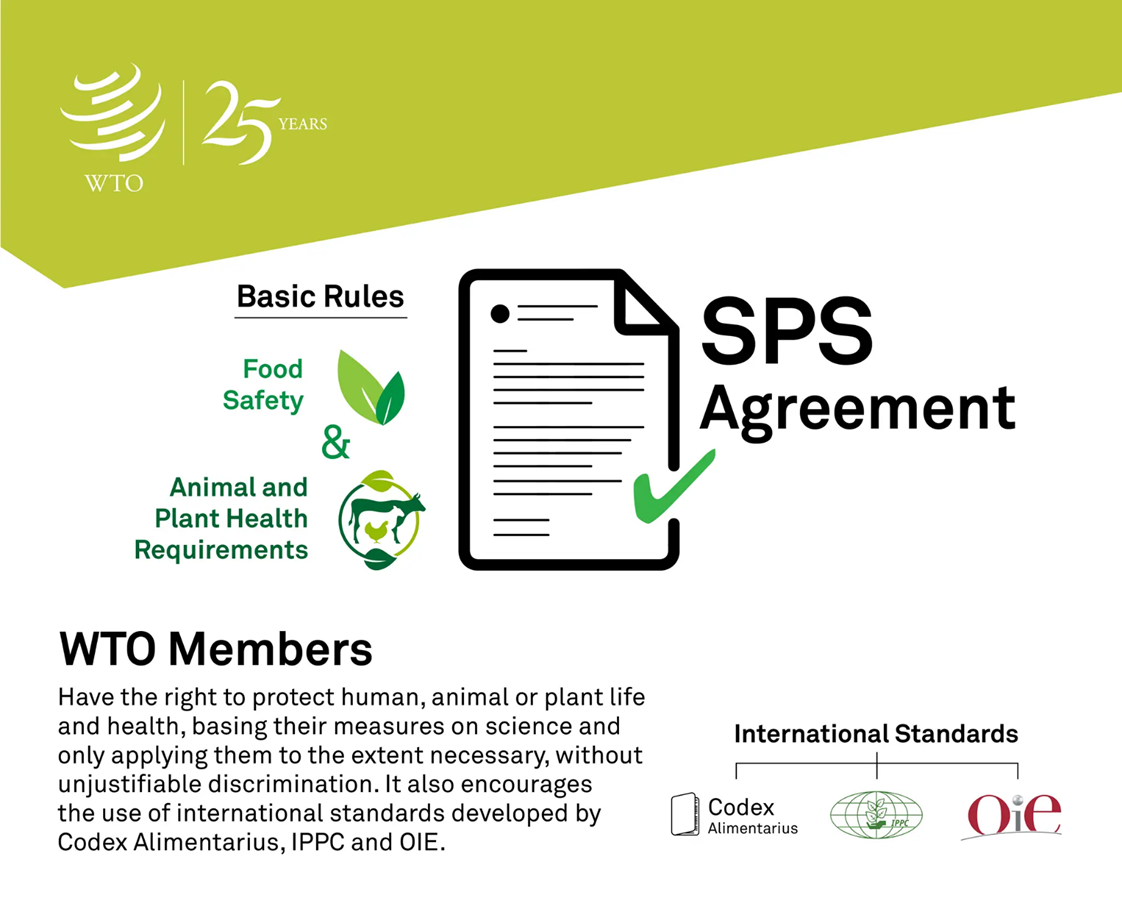- Courses
- GS Full Course 1 Year
- GS Full Course 2 Year
- GS Full Course 3 Year
- GS Full Course Till Selection
- MEP (Mains Enrichment Programme) Data, Facts
- Essay Target – 150+ Marks
- Online Program
- GS Recorded Course
- NCERT- First Ladder
- Polity
- Geography
- Economy
- Ancient, Medieval and Art & Culture AMAC
- Modern India, Post Independence & World History
- Environment
- Governance
- Science & Technology
- International Relations and Internal Security
- Disaster Management
- Ethics
- Current Affairs
- Indian Society and Social Issue
- CSAT
- 5 LAYERED ARJUNA Mentorship
- Public Administration Optional
- ABOUT US
- OUR TOPPERS
- TEST SERIES
- FREE STUDY MATERIAL
- VIDEOS
- CONTACT US
The WTO's Sanitary and Phytosanitary Agreement (SPS Agreement)
The WTO's Sanitary and Phytosanitary Agreement (SPS Agreement)
13-06-2024

India and the United States (US) have resolved their long-standing dispute over poultry imports from Washington by reaching a mutually agreed solution.
- With this resolution, all 7 disputes between the two countries before the World Trade Organization (WTO) have been settled.
About the SPS Agreement:
- The SPS Agreement, a treaty of the WTO, sets out fundamental rules for food safety, animal health, and plant health standards. It became effective on January 1, 1995, when the WTO was established.
- The agreement aims to ensure that sanitary and phytosanitary (SPS) measures are based on scientific principles and evidence to protect human, animal, and plant health without creating unnecessary barriers to international trade.
Key Provisions of the SPS Agreement:
- Scientific Basis: SPS measures must be grounded in scientific principles and sufficient evidence, except for provisional measures.
- Harmonisation: Members are encouraged to align their SPS measures with international standards established by organisations such as the Codex Alimentarius, the World Organization for Animal Health (OIE), and the International Plant Protection Convention (IPPC).
- Equivalence: SPS measures of other countries should be accepted as equivalent if they achieve the same level of protection as the importing country's measures.
- Risk Assessment: Countries must conduct risk assessments to determine the appropriate level of protection, considering the potential impacts of pests or diseases.
- Regionalization: Members should recognize pest- or disease-free areas and low-prevalence areas, even within a single country or group of countries.
- Transparency: Countries must notify changes in their SPS measures and provide regulatory information through the WTO's SPS notification system.
- Dispute Resolution: If consultations between countries fail to resolve disputes related to SPS measures, the disputes can be brought before the WTO's Dispute Settlement Body (DSB).
The WTO's Dispute Settlement Body:
- The Dispute Settlement Body (DSB) of the WTO is responsible for adjudicating trade disputes between governments.
- It makes decisions based on the WTO's agreements and interpretations of those agreements by the DSB.
- The DSB's decisions are binding on the disputing parties.



